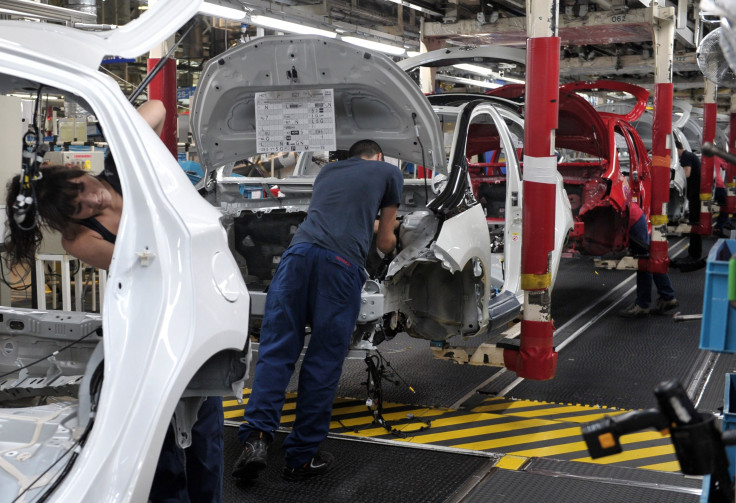Toyota Recalls About 2.9 Million SUVs Over Seatbelt Malfunction

Toyota Motor Corp., the world’s largest carmaker by sales, is recalling about 2.87 million sport utility vehicles (SUVs) globally after concerns emerged that the seatbelts may fail in a crash. The recall includes models of its crossover SUV — the RAV4 — produced between 2006 through 2012, as well as the RAV4 electric vehicle from 2012 through 2014.
Toyota initiated the recall after the rear belts in one of its cars separated in a fatal crash in Canada, while another incident in the U.S. left one injured, according to reports. The company is yet to confirm if the fatality or injury were connected with the defect, but said in a statement Wednesday that in a severe frontal crash, the metal seat cushion frame in the back seats could sever the rear seats' lap-shoulder seatbelts. This would result in the seatbelts not fully restraining occupants, increasing the chances of an injury.
Toyota's worldwide recall reportedly covers 1.3 million vehicles in North America, along with around 625,000 vehicles in Europe, 434,000 vehicles in China, 177,000 in Japan and 307,000 in other regions.
The carmaker said in the statement that it would add resin covers to the metal seat cushion frames of all the vehicles, to prevent any metal pieces from cutting the seat belt in the event of a crash.
Wednesday’s recall has added to what has already snowballed into one of Toyota’s biggest repair programs to fix malfunctioning safety features in its cars. The automaker is one of the 14 companies recalling an estimated 24 million vehicles worldwide, as the installed air bags, manufactured by troubled Japanese firm Takata Corp., would rupture with excessive force in some cases, spraying metal shrapnel into the cabin.
Earlier this week, Toyota resumed production at its assembly plants in Japan after an explosion at one of its steel suppliers’ factory resulted in a shortage of parts. However, Toyota confirmed Monday that four of its Japan-based plants had been restarted after work was suspended between Feb. 8 and Feb. 13.
© Copyright IBTimes 2024. All rights reserved.











